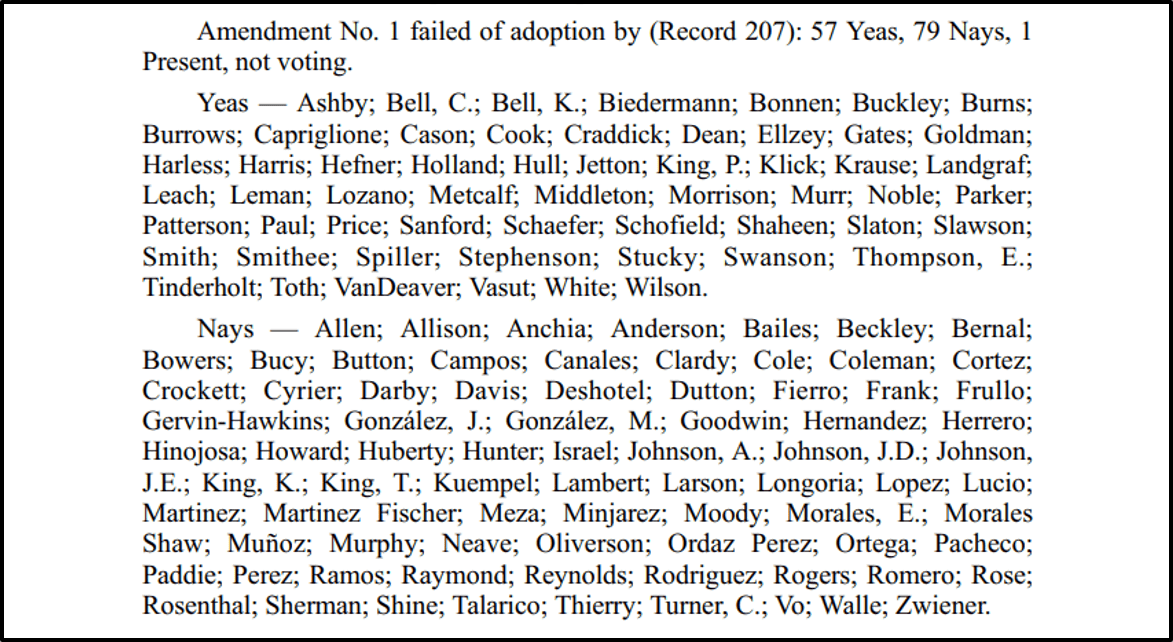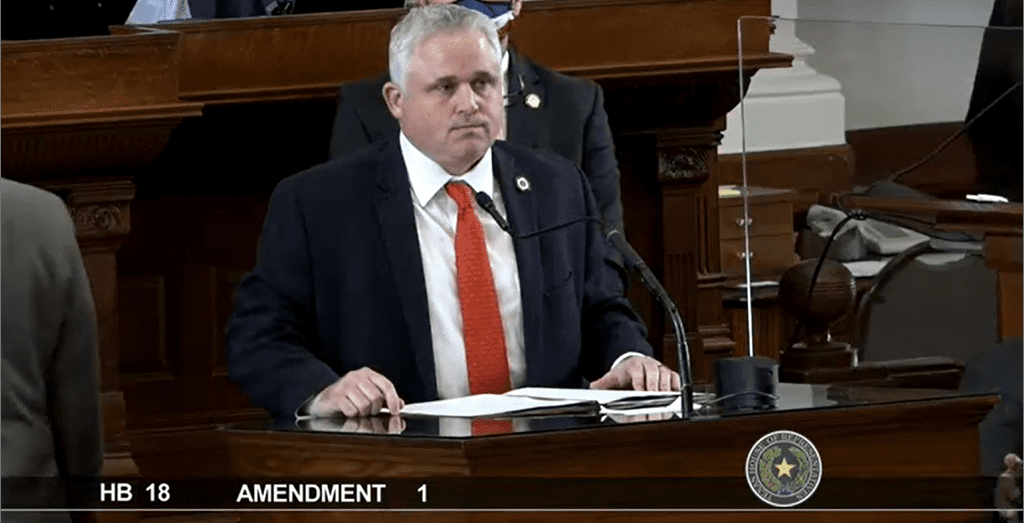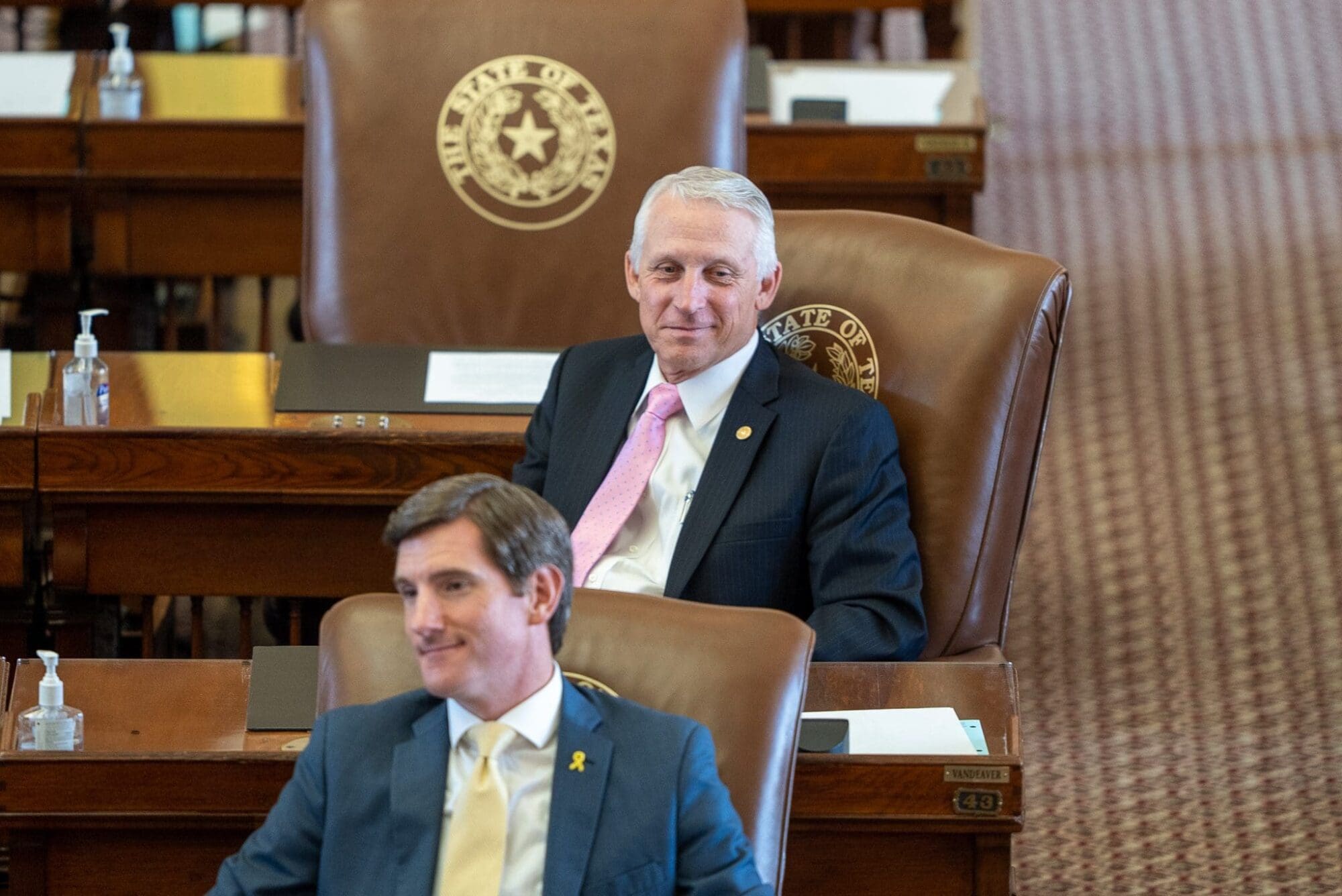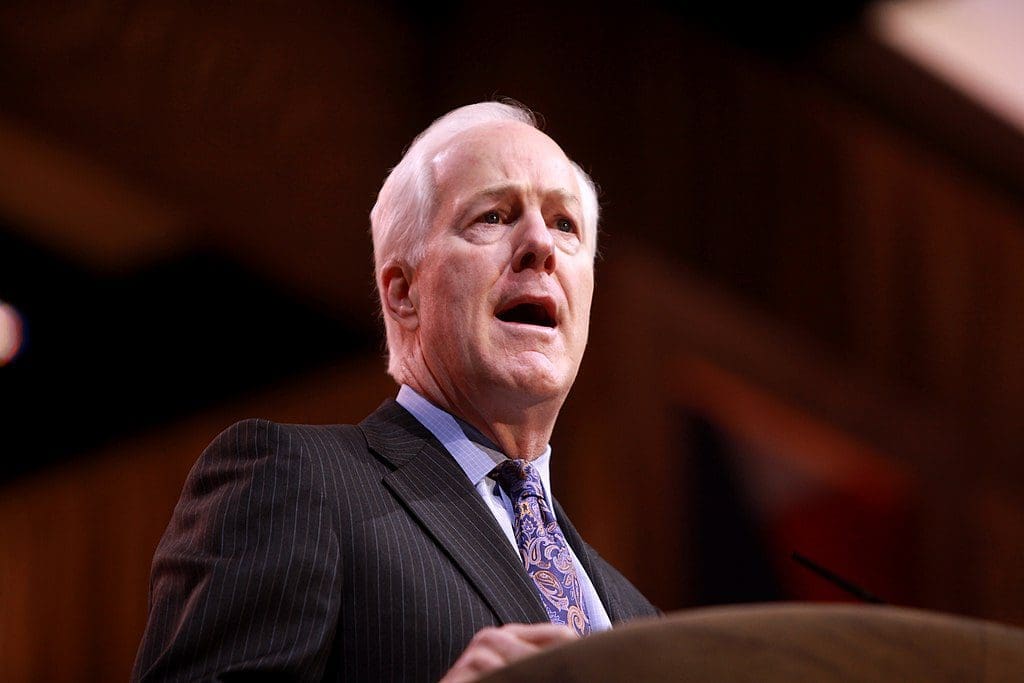On Wednesday, the House of Representatives considered several bills related to Speaker Dade Phelan’s legislative priorities specific to healthcare. In a press conference late last week, he introduced the priorities as “Healthy Families, Healthy Texas.”
One of the bills considered was House Bill 18 by State Rep. Tom Oliverson (R–Cypress). The bill ultimately establishes a prescription drug savings program for about 3 million Texans.
Gender Modification Amendment
State Rep. Bryan Slaton (R–Royse City) offered an amendment that would have prevented puberty blockers from being administered as a part of the program.
While fielding questions, Slaton said this about his amendment, “The reason why we would want to include this is because in cases where children, prepubescent, are being prescribed things, not for a medical reason … they are being prescribed for the purposes as presenting as a sex that is contrary to their biological sex.”
Both State Reps. Celia Israel (D–Austin) and Rafael Anchia (D–Dallas) spoke against the amendment. A perturbed Oliverson spoke on the amendment but expressed frustration that Slaton did not speak to him about the amendment to his bill beforehand.
Ultimately, the amendment failed by a vote of 57 in favor and 79 in opposition. Twenty Republicans joined with Democrats in voting against the amendment.

Those Republican representatives include Steve Allison (San Antonio), Ernest Bailes (Shepherd), Angie Chen Button (Garland), Travis Clardy (Nacogdoches), John Cyrier (Lockhart), Drew Darby (San Angelo), James Frank (Wichita Falls), John Frullo (Lubbock), Dan Huberty (Humble), Todd Hunter (Corpus Christi), Ken King (Canadian), John Kuempel (Seguin), Stan Lambert (Abilene), Lyle Larson (San Antonio), Jim Murphy (Houston), Tom Oliverson (Friendswood), Chris Paddie (Marshall), Glenn Rogers (HD 60), and Hugh Shine (Temple).
State Rep. Charles ‘Doc’ Anderson (R–Waco) originally voted no but entered a statement into the House Journal explaining his change of vote.
Related Bills Getting Hearings
As an update to a recent commentary on gender modification, related bills have now received hearings in committees in both the House and Senate.
On Monday, the Senate State Affairs Committee heard two bills; though the bills had slight differences, both would prohibit gender transitioning procedures on minors. The first, Senate Bill 1311 by State Sen. Bob Hall (R–Edgewood), would penalize insurance companies that cover the transition procedures. The second, Senate Bill 1646 by State Sen. Charles Perry (R–Lubbock), would classify the procedure as child abuse. The bills were left pending in committee.
On Wednesday, the House Public Health Committee heard a bill related to prohibiting the use of puberty blockers and gender transition surgeries by physicians on minors. The bill, HB 1399, is authored by State Rep. Matt Krause (R–Haslet). The bill currently boasts the support of 33 other authors. Of those supporters, four of them voted against the amendment on HB 18: State Reps. Charles ‘Doc’ Anderson (R–Waco), Tom Oliverson (R–Cypress), Glenn Rogers (R–HD 60), and Hugh Shine (R–Temple). This bill was left pending in committee.
What It All Means
As of today, there are just 46 days left in the 140-day legislative session. With upcoming deadlines, however, the window for legislation to actually make it through the legislative process is starting to close; especially in the House of Representatives.
May 10 marks the last day by which committees can send bills to the House Calendars Committee for consideration and placement on a calendar to be considered by the whole House.
May 13 marks the last day that the House can consider a House Bill on second reading, meaning we are within a month of those deadlines. What is important to note is that a House rule exists allowing the House Calendars Committee to take no action on a bill for up to 30 days, which makes it possible to ultimately kill any bill that sits there.
It is unclear what prospects there are for any of the bills related to gender modification going forward. The issue is a legislative priority of the Republican Party of Texas.





